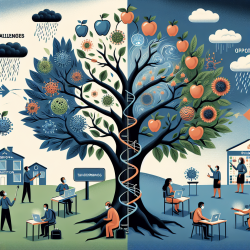Understanding Trauma-Informed Care for Native Youth
Trauma-informed care has become an essential approach in addressing juvenile delinquency, particularly for Native youth who are disproportionately affected by traumatic experiences. The research article "Trauma Informed Delinquency Interventions for Native Children" highlights the need for innovative approaches tailored to the unique needs of American Indian and Alaska Native children.
The Significance of Trauma-Informed Approaches
Trauma-informed care involves recognizing the impact of trauma on behavior and integrating this understanding into interventions. For Native youth, trauma often stems from both individual and collective experiences, including historical trauma. This makes it crucial for interventions to be culturally sensitive and community-focused.
Key Innovations in Tribal Systems
Tribal justice systems have developed unique models that incorporate cultural traditions and community involvement, offering a holistic approach to trauma-informed care. These models emphasize:
- Holistic and Structural Approaches: Redefining the role of legal systems to focus on healing rather than punishment.
- Collective and Historical Trauma: Addressing trauma at both individual and community levels, acknowledging the impact of historical events.
- Community-Specific Models: Developing interventions that are locally tailored and culturally relevant.
Implementing Research Outcomes
Practitioners can enhance their skills by integrating the insights from tribal models into their practice. This involves:
- Adopting a community-centered approach that involves families and elders in the healing process.
- Incorporating cultural activities and traditions as part of the intervention strategy.
- Collaborating with tribal communities to develop and evaluate culturally adapted interventions.
Encouraging Further Research
While tribal systems have made significant strides, there is a need for further research to validate and refine these approaches. Practitioners and researchers should focus on:
- Evaluating the effectiveness of tribal interventions and identifying best practices.
- Exploring the genetic and intergenerational aspects of trauma among Native youth.
- Developing new models that integrate both Western and Indigenous knowledge.
By embracing these strategies, practitioners can contribute to creating more effective and culturally sensitive interventions for Native youth, ultimately leading to better outcomes.
To read the original research paper, please follow this link: Trauma Informed Delinquency Interventions for Native Children.










